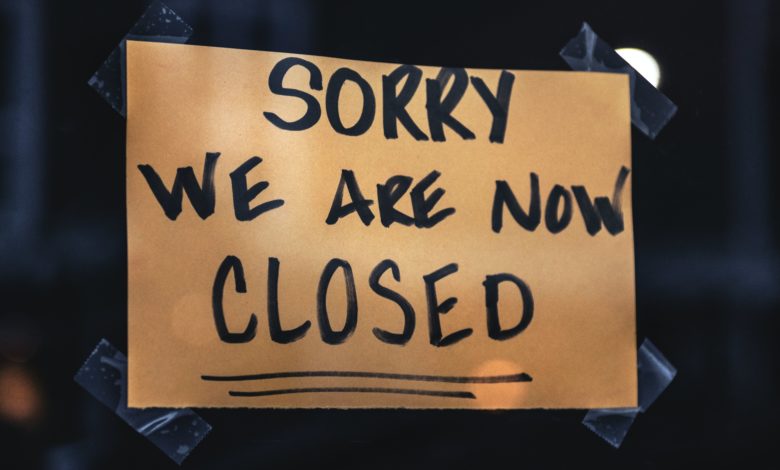
How Businesses Can Stay Accountable When Disaster Strikes
Image Source: https://unsplash.com/photos/pFjMjuZpm24
Throughout the lifespan of a business, disasters are bound to strike, whether in the form of an inclement weather event, unexpected financial setback, or pandemic. In Indiana and beyond, how business leaders prepare for and respond to any disaster can make or break that business. What’s more, your disaster response plan is indicative of your character as a leader who cares for your business, employees, and community as a whole.
Business leaders must plan to mitigate damages related to a sudden disaster. Your insurance, for example, should be comprehensive and account for such concerns as property damage and potential litigation. But you must also be prepared for the unexpected, and be able to roll with changes that may not be part of your contingency plan.
Here’s what you need to know about the various disasters that could impact every aspect of your business, including the supply chain. No matter your industry, the good news for business leaders is that there are numerous ways in which you may be able to actively respond to, and bounce back from, unexpected events and natural disasters.
The Importance of Being Proactive
While the idea of planning for disaster prevention may seem like a no-brainer, you may be surprised at how many business leaders are woefully unprepared. Indeed, the sudden spread of the novel coronavirus caught countless business leaders off guard. The concept of socially distanced work was left out of many business resiliency plans, and the learning curve was steep.
News sources have gone as far as to say that the COVID pandemic is “beyond the worst-case scenario” in the bulk of business recovery plans. Put simply, the modern world has never seen anything like it, and full economic recovery is expected to take years. The future of your business hinges on how well you planned for a similar eventuality, along with the overall flexibility of your business plan.
And it’s not too late to get started, even if your business was uprooted by COVID. The U.S. federal government recommends that every small business have a comprehensive emergency plan in place. What’s more, “business continuity planning must account for both man-made and natural disasters,” according to the Federal Emergency Management Agency (FEMA). Thus, your emergency plan should account for various situations, as well as offer flexibility as disaster situations can change rapidly.
Disaster Recovery and Accountability
Your disaster recovery plan should first account for risk factors — that is, you should have at least a basic idea of the most common disasters that could affect your community. Further, don’t make the mistake of underestimating the potential devastation of a natural disaster. About half of small businesses adversely affected by natural disasters are never able to re-open their doors. Although this type of sobering fact may be hard to accept, business leaders must be prepared to make tough decisions when disaster strikes.
To avoid a similar fate, your small business disaster recovery plan should include actionable steps that are easy to implement following any type of emergency. Open communication with your employees and customers is a vital part of the process, helping to ensure continued loyalty after the fact.
If you have crunched the numbers and decided to downsize, let your staff know as soon as possible. You may also want to offer emotional support to any employees negatively impacted by the disaster. In the case of COVID, families of essential workers may be especially vulnerable, and your updated business policies should reflect their concerns. Transparency and accountability will take you far as you navigate the rebuilding process and adapt to an updated business model, post-disaster.
Protecting Your Business from Litigation
Your business plan also needs to account for the possibility of legal action from unexpected events including workplace accidents. Accidents on the job site may be more common than you realize, and employees injured at work may choose to seek legal action against your business. Therefore, as a company leader, it’s in your best interest to mitigate possible damage before the fact.
By providing your employees with workers’ compensation insurance, you’re doing much more than simply fulfilling a legal obligation: Your company will also be protected from the possibility of a costly lawsuit in the event of an on-the-job accident, whether related to a natural disaster, pandemic event, or employee negligence. When disaster strikes, revenue loss is likely to follow, and the additional burden of litigation could keep your company doors shuttered for good.
Consider The Future Of Your Firm
If you manage to chart a course through this difficult time, it behooves you to learn from this experience. This means integrating essential failsafe and contingencies to prevent disaster from becoming quite damaging, to the degree that you can, and training staff as appropriate.
While it can seem insensitive to discuss, disaster can also help pave the way for rethinking and retooling your business, effectively starting over. It may be, for instance, that better signposting is needed to help your staff or guests evacuate the building when necessary, or floodlight installation can help those routes remain visible. In addition, perhaps adding flood defenses or offsetting your servers elsewhere using managed IT services can protect against downtime.
Disaster is, of course, almost always negative, but it can be learned from.
Key Takeaways
If the unthinkable occurs, does your business have a backup plan? Does your brand need a facelift that better reflects the ideals of a customer and employee base directly affected by a disaster? No matter what happens, having a mindful, comprehensive recovery plan in place before disaster strikes could make all the difference to your bottom line, as well as the future of your business.




